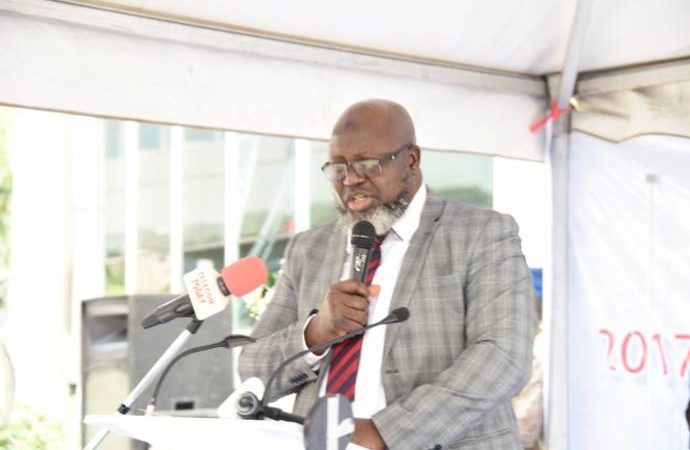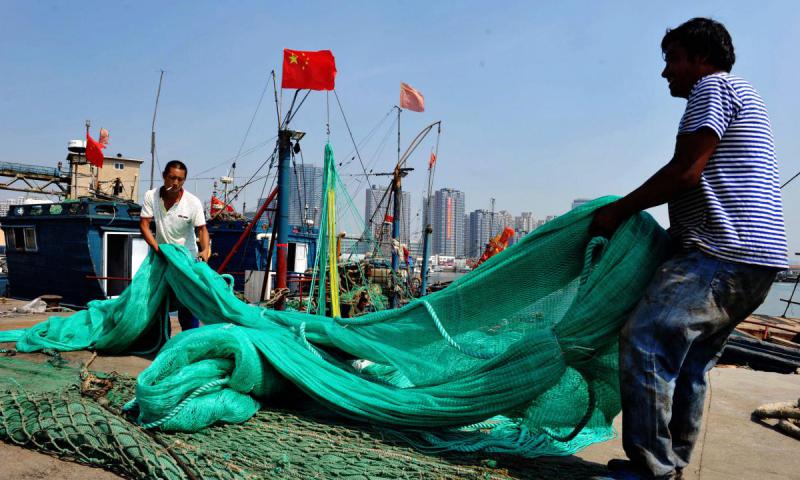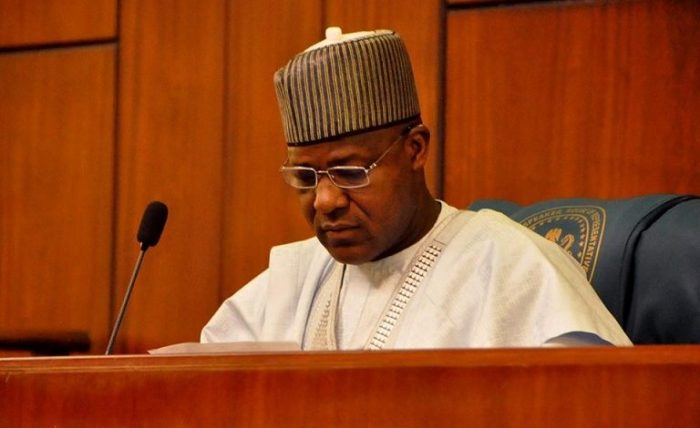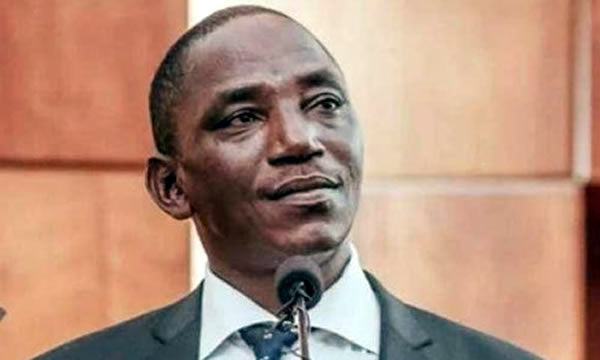….Says maritime sector key to Nigeria’s economic revival
….Pledges commitment to passing suppression of piracy and other unlawful Acts at Sea Bill
The Speaker of the House of Representatives , Hon. Yakubu Dogara, has expressed dismay that Illegal Unreported and Unregulated ( IUU ) fishing leads to an annual loss of over 1.3 billion dollars in West Africa alone.
This is just as he pledged the commitment of the National Assembly to continue to be active in passing legislations that will make Nigeria’s seas and waterways safer for exploration and exploitation of its natural resources for the benefit of Nigerians.
Speaking while delivering a goodwill message at the annual conference of the Association of African Maritime Administrators in Abuja, the Speaker said, “Statistics has it that Illegal Unreported and Unregulated ( IUU ) fishing leads to a loss of over 1.3 billion dollars in West Africa alone, yearly.
“We must tighten the legal and regulatory framework to stop these losses. We must intensify efforts to promote intra- African trade in fisheries as statistics also show that Pan-African fish trade is worth about 20 billion euros. This will help to sustain African economies in the long term.”
He added, “We as a parliament have been at the forefront of legislation on maritime issues in the past and are currently, actively involved in processing legislations in the maritime sector. The House of Representatives of Nigeria only last week passed the National Transport Commission Bill which it is hoped would have a huge impact on the maritime sector especially with respect to economic regulation of activities of operators and agencies in our maritime sector.”
The Speaker also gave the commitment of the National Assembly to give speedy legislative action to the proposed Bill for an Act to provide for the Suppression of Piracy and other unlawful Acts at Sea (and other related offences) and urged the executive to transmit it, and other IMO conventions to the National Assembly.
“The Bill, when passed, is expected to “give expression to relevant Conventions, Treaties and Charters on safety and security and further strengthen Nigeria’s desire to make its waters safe”, according to the promoters of the Bill. The bill is in the court of the Executive at the the moment and we await its transmission as an Executive Bill for legislative processing into law. The Executive should also use the opportunity to transmit other IMO Conventions and Protocols that have been acceded to by Nigeria, for domestication by the National Assembly,” the Speaker said.
Furthermore, he charged African maritime organisations to change the present situation where Africans do not benefit from the abundance of natural resources in its seas and waterways.
Dogara said this is attainable only if the era of paying lip service to producing indigenous skilled sea men and women and indigenous fleet owners is replaced with one in which conscious and practical actions are taken towards achieving the goal.
“Permit me to awake our conscience, even if it amounts to a rebuke, to the fact that the days of paying lip service to the emergence of, skilled indigenous seamen and sea women and indigenous fleet owners, not vessel owners, are well over. A strong man lifts the cargo he generates, therefore Africa must possess the capacity to lift the cargo it generates, be they dry or wet, if it must qualify as a strong maritime continent. The goal of this conference must not be the sustainable use of African oceans and seas by non Africans but by Africans first and then others. I know of very few curses greater than for one to make his bed and for another to lie on it. Therefore, my charge to you administrators, is to ensure that as you make this bed, you will also be making Africans who must lie on it.
The Speaker also stated that Nigeria’s economic revival can be achieved through the exploration and exploitation of Africa’s vast ocean resources, while noting that sadly, developing countries have not benefitted from the potentials the resources the seas have to offer while developed countries have done well in exploiting these resources.
“Developed countries have done a better job of exploiting these resources. We in Africa need to do much more to use these God given resources to feed our people, fight poverty and develop efficient ports and effectively administer the waters of the Seas. We can create high paying jobs for our teeming youths, develop an efficient transportation system, exploit efficiently the oil and gas resources and other minerals contained in the deep seas and oceans of Africa. Nigeria is potentially a major maritime power considering the depth and breadth of our Exclusive Economic Zone and Territorial waters, and can do even more to efficiently and effectively make sustainable use of the Oceans and Seas,” he explained.
Speaking on some of the potentials, Dogara, added that fishing is one of the major economic activities of most maritime communities all over Africa and sustainable development of the local fisheries sector has the capacity to improve food security and lift people out of poverty and hunger.
“Fisheries and aquaculture provide jobs for millions of people including our women and youths,” he said, adding, “as a maritime nation, Nigeria has a responsibility together with other nations and international organisations, like the International Maritime Organisation (IMO), to make our waters safe and secure.”
“It is as a result that the Legislature in Nigeria has been very active in maritime related legislations over the years. In 2007, the National Assembly of Nigeria, created the Nigeria Maritime Administration and Safety Agency (NIMASA) from the old National Maritime Authority (NMA) and amended the 1962 Merchant Shipping Act and empowered NIMASA to administer the Act.
Furthermore, the National Assembly has domesticated twelve very important Maritime Safety and Security Conventions of the IMO which are necessary for safeguarding security and safety in our region. It has also domesticated the International Ships and Port Facility Security (ISPS) Code, which is a very important IMO Convention instrument for safety and security at Nigerian ports as part of its Ports State duties. The Nigerian parliament has also domesticated eight important Conventions and Protocols on marine environment geared towards a clean, safe and secure marine environment,” Dogara said.
He also added that the parliament will actively participate in the discussion of maritime security, safety, administration and development in line with the impact of Climate Change and the possibility of developing a blue economy following the Paris Convention on Climate Change.
“Nigeria and indeed Africa cannot be left behind. We shall play our own part as when it is brought before us in due course,” he stated.






